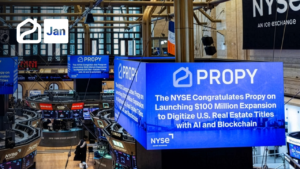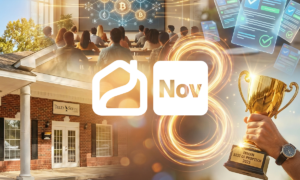
The American Dream has always been about home ownership. Unfortunately, the Dream can sometimes be out of reach for low-income individuals or those who struggle with low or no credit, as most banks will only extend a mortgage offer to borrowers with a steady job and decent credit history. Although this is likely to remain the case, a new type of loan, known as a blockchain mortgage, may have the effect of loosening lending standards.
What Is a Blockchain Mortgage?
Real estate is illiquid, or difficult to convert into cash. While stocks or mutual funds can sell with the click of a button, the sale of a home may require an inspection, a title search, and meetings with closing attorneys. Blockchain moves real estate closer to stocks, funds, and other liquid assets through tokenization.
A blockchain mortgage, like a traditional mortgage, is a loan made in exchange for equity in a property. Blockchain merely enables that equity to be tokenized, or divided into digital shares that can be easily traded or sold. As one example, Fintech startup Fluidity plans to offer these products to prospective homebuyers in California and New York. Then, the company can even package and resell the tokens as securities through an exchange.
Benefits to Investors and Borrowers
The benefits to investors are apparent. Investors have long used REITs to earn income from real estate without the hassle of managing it. Tokenization takes this idea to the next level. While REITs focus on sectors or regions, a token can be backed by any property, anywhere, at any stage of its development.
If there is investor demand for blockchain mortgages, blockchain mortgage lenders might even be able to relax lending requirements – and rates – for responsible, non-traditional applicants. In this way, blockchain may lower barriers for good risks who, for one reason or another, could not meet the standards of the legacy system.
A Revolution in Real Estate
Over the past few years, the real estate industry has adopted a series of blockchain-related advances. Propy has shown that smart contracts can automate the purchase process. Additionally, its Blockchain Title Registry streamlines and secures deed registration. Blockchain mortgages will bring tokenization to real estate investors, and more qualified borrowers may get a shot at the American Dream.






